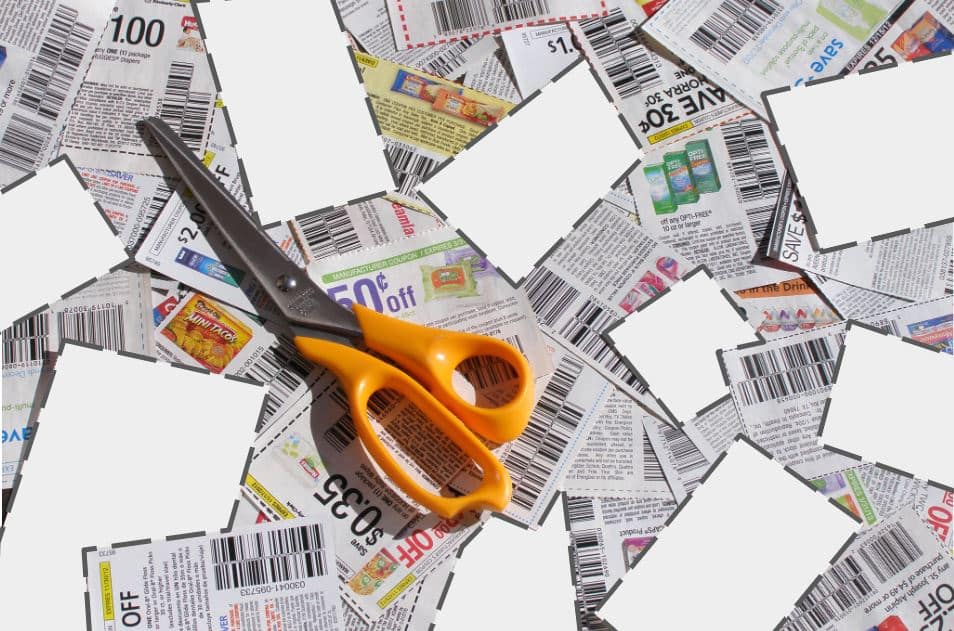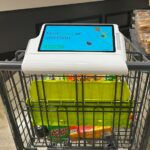
What will the grocery store of the future look like? One can imagine it becoming more pleasant and more convenient, with a lot of handy new technology, a more curated product selection, more personalized offers – and maybe no coupons?
What’s so pleasant and convenient about that?
Over the decades, we’ve seen innovations like bar codes, loyalty programs, self-checkouts and grocery apps and websites. But the actual process of buying groceries hasn’t changed very dramatically during that time. In recent years, though, change has been coming fast – online ordering, personalized promotions, “just walk out” cashierless checkouts. And grocery executives believe those innovations are just the beginning.
Deloitte has published a deep dive into “The future of grocery retail,” the result of conversations with hundreds of grocery professionals and others with insights into the industry and society at large. The general consensus is that the pace of change is rapidly increasing – and it seems the grocery store of the future as they envision it, may not have a place for coupons as we know them today.
Many of the changes we’re likely to see are due to a combination of improving technology and evolving shopper needs. For decades, Deloitte says shoppers were “well-served by larger formats from trusted brands, where one-size-fits-all worked.” But it’s no longer a winning proposition for grocery stores to cater to the “average consumer that, in many senses, no longer exists.”
Shoppers are becoming more diverse, they’re not always following a predictable path from marriage to kids to a house in the suburbs, and they have diverging preferences about what they buy and how they shop. And technology is helping grocers better identify those different shoppers, and better cater to them.
This, Deloitte says, is “driving the industry to consider shifting its paradigm from mass to micro.” Instead of filling a giant supermarket with tens of thousands of products – many of which are the same that every other store has – and inviting shoppers to roll through endless aisles to pick the few things they actually want, technology will increasingly help grocers give each individual shopper exactly what they’re looking for – even if they didn’t know they were looking for it.
“The future of grocery retail will likely use data, algorithms, and automation” to further personalize the shopping experience, Deloitte predicts. That’s already happening with promotions and marketing, which are becoming increasingly targeted, the report points out.
Consider the grocery sales circular, or the Sunday coupon insert. Sent to millions of households a week, they’re the very definition of mass advertising, pitching the same set of products and promotions to everyone, in the hopes they will appeal to just enough shoppers to make it worth the grocery stores’ and product manufacturers’ while. In recent years, though, more weekly circulars have gone digital, and are personalized to individual shoppers who look them up online. Meanwhile, fewer brands are offering coupons in the Sunday inserts, and there are fewer inserts altogether, as more coupons become digital and promotions become more personalized.
So these days, you might have a hard time finding a paper coupon for your favorite brand of cereal, or laundry detergent, or frozen pizza. But you may well find a digital coupon in your grocery loyalty account, or a “just for you” special pricing offer.
Even those forms of personalized discounts may become obsolete before long, though. “Look at the rise of retail media, where grocery technology draws in targeted marketing revenue for access to a very targeted audience,” Deloitte’s report states. Brands are starting to devote more of their marketing budgets to running digital ads in-store, or online ads on a grocer’s e-commerce website or app, to reach a persuadable shopper right when they’re ready to make a purchasing decision. That’s instead of printing up millions of paper coupons to stuff into newspapers, or loading up a digital coupon gallery with hundreds of offers you may never bother to browse, hoping that just a tiny percentage will incentivize a handful of purchases.
And you want to get really futuristic, “advanced natural language processing and generative AI will likely change how marketing content is developed and shoppers search for deals,” Deloitte envisions. Predictive analytics could be used to determine what you want without you even having to decide. More than half of the grocery executives Deloitte surveyed believe within the next five to ten years, they’ll be able to offer their shoppers “automated prepicked… core items, available upon exit.” You won’t even have to shop for what you want – your store will just have your favorites ready for you. No need for coupons to incentivize a purchase, when your purchases have already been predicted.
In time, brand-name discounts for brand-name products may become increasingly irrelevant anyway. Grocers are investing more and more in store-brand products, and shoppers have been responding by buying more of them. Brands are exploring more “direct-to-consumer models, and are building their own or working with third-party customer loyalty apps that bypass the retailer,” Deloitte says. So a future grocery store may become the place you buy fresh foods and store-brand products, while the national brands that you buy in store today, you’ll be more likely to simply order online direct from the manufacturer.
Now and in the future, shoppers will always be looking for savings, and trying to get the best price for what they buy. But the way we all do so, may be subject to some dramatic changes in the years to come. Coupons may never completely go away, but then that’s what they said about Green Stamps back in the day. If the grocery store of the future turns out to exist in a world without coupons – well, at least they had a good long run.
Image source: Chris Potter















